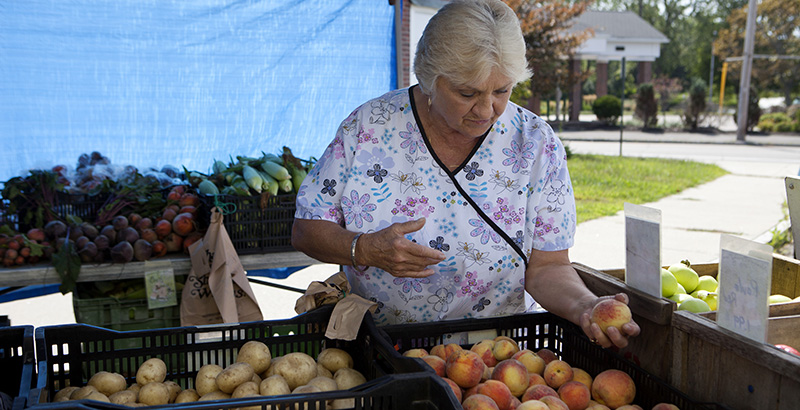Shuls: Do Charter Schools Take Districts’ Money? Only If You Think Children, and the Funding That Comes With Them, Are District Property

How would you respond if you stumbled across a headline that asked, “How much do farmers markets cost Walmart?” It’s a ridiculous question. It presupposes that the customer belongs to Walmart; that any time the individual chooses to buy cucumbers from a local grower or salsa from an aspiring entrepreneur, he or she is “robbing” the dominant grocer. That’s just absurd. Yet this is the standard frame we use when talking about education. We blithely assume that education is wholly different from any other field.
Consider, for example, a recent headline on the Education Writers Association’s website: “How Much Do Charter Schools Cost Districts?” It’s the same question, and it is just as absurd as when talking about groceries. Worse, it is unethical, because it dehumanizes children, reducing them to economic units. In this formulation, neither they nor their parents are individuals with aspirations, endowed with free will and the ability to act in their own self-interest; they are a mere funding stream for public school districts.
This type of headline is all too common. Most people wouldn’t even bat an eye at it. But this isn’t just semantics. It gets at the heart of the way many people view public education.
It is only in education that we presume the customer is the rightful property of a specific supplier and therefore “costs” the supplier when he or she goes somewhere else. Indeed, this is the fundamental problem with the public education system in the United States: We presume the tax dollars that fund a child’s education belong to the public school district and the child belongs in a public school seat.
If, heaven forbid, parents want to use those education funds at a charter school or a private school, they must prove that “choice” works. We demand that school choice programs justify themselves by increasing student achievement on standardized tests, or increasing graduation rates, or fixing decades-old segregation issues. We would never ask the farmers market to prove its tomatoes are bigger and juicier than Walmart’s as a condition of operation.
It doesn’t stop there. A few years ago, one writer went as far as to say, “You are a bad person if you send your children to private school.” You can almost hear Snowball from Animal Farm repeating the mantra, “Four legs good, two legs bad.” It’s us versus them. We treat public education as if it — the system, the school district — were the ultimate good to be served. Just google “school vouchers” and look at the images. The internet is replete with political cartoons that characterize school choice programs as systematically dismantling traditional public schools, brick by brick.
Challenges to this concept are not new. In his 1958 book, Freedom of Choice in Education, Father Virgil Blum wrote that “our educational policy must be philosophically based on the dignity and transcendent value of the individual, on the integrity and freedom of the human person; it must be legally based on the Federal Constitution, recognizing the individual student clothed in all his constitutional rights.” We are no closer to that reality today than we were 60 years ago.
Our commitment to educating every child, regardless of wealth or ability, is a reflection of our highest and noblest ideals. What we do today in our public education system is a feat that was almost unthinkable even 100 years ago. Yet in the process of building that system, we somehow lost our purpose. Instead of the system serving the children, we now insist the children must serve the system.
If we are ever to change this, we must first change how we talk about public education. We can’t presume, as the author of the Education Writers Association piece did, that children and their funding inherently belong to the public school system. Do public school districts have less money when a student goes to a charter school or a private school? Absolutely — as they should. This is what happens in any industry when customers choose to spend their dollars at one place instead of another. More to the point, it is what happens when students leave a district school for any reason.
In the final analysis, we must realize that public education is not about the school system, but the students that it is supposed to serve. They have value. They have worth. They should have choices.
James V. Shuls, Ph.D., is an assistant professor of educational leadership and policy studies at the University of Missouri-St. Louis.
Get stories like these delivered straight to your inbox. Sign up for The 74 Newsletter

;)